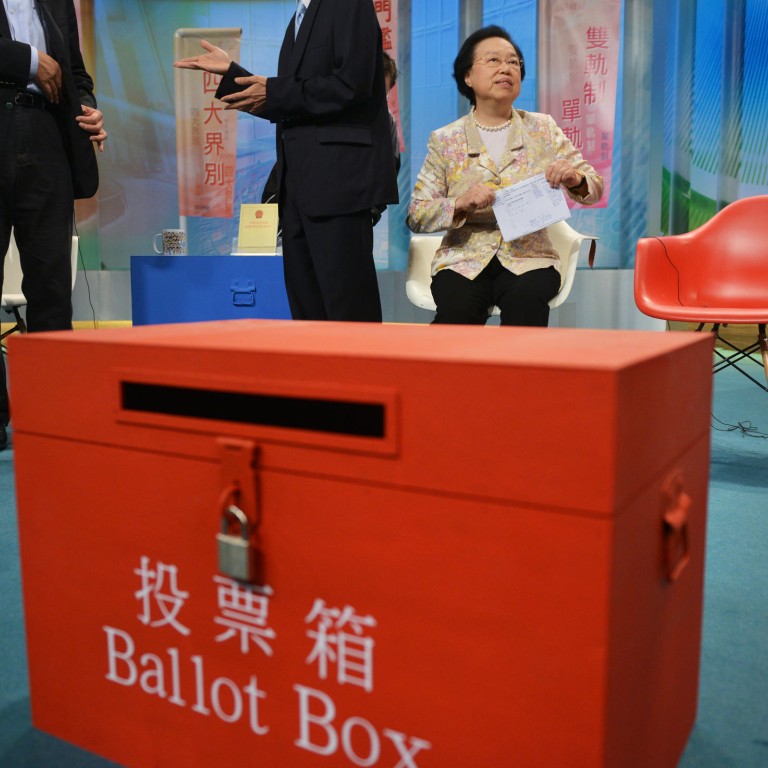
CY Leung and the art of controlling electoral outcomes
We see that our chief executive has been speaking about constitutional reform again. He is reported to have said that all universal suffrage systems in the world can be regarded as "genuine" if they are designed in accordance with the law. Clearly constitutional law is not his strong point.
The discussion of Hong Kong's electoral arrangements have become increasingly Orwellian as the government and pro-Beijing supporters persist in claiming that the proposals for the 2017 chief executive are a "step forward". We are told that if everyone over 18 has a vote this is universal suffrage and is surely a good thing. It might be if you had a choice over who to vote for.
Some people think that the arrangements suggested by the Standing Committee of the National People's Congress in its August 31 decision last year does give us a choice. If there are two or three candidates then there's a choice, so the thinking goes. But the August 31 decision has made it much harder for candidates to get nominated.
Previously candidates needed to secure support from 18 per cent of the nomination committee to get on the ballot. Under the new proposals for 2017, candidates will need to get the support of 50 per cent.
Under the 2012 arrangements Democrat Albert Ho was able to get nominated. But if we now give everyone the vote and keep the 2012 18 per cent threshold, there is a "danger" that the likes of Albert Ho could get elected chief executive. So to eliminate this possibility, the threshold had to be raised from 18 per cent to 50 per cent. To paraphrase this in terms of CY Leung political thought: When is a rigged election not rigged? When it conforms with the law.
This whole electoral process is a charade designed to disguise the fact that it's a rigged election in which the only choice people have is which pro-Beijing candidate to vote for.
This week we have seen the passing of Singapore's Lee Kuan Yew, a highly respected political leader who raised fashioning the outcome of an election to an art form. We in Hong Kong will have to contend with the rather less artful CY Leung electoral outcome. How anyone can call this "a step forward" is a mystery.
Sometimes when you see comments about "the market" by the authorities in China, you have to wonder how they conceive of it. We noticed a headline the other day, "China's cabinet says rail merger should follow market rules." The story referred to the merger of the country's two leading rail companies, China CNR Corp and CSR Corp, but with no hint of the obvious irony. A Reuter's story notes that, "The two state-owned firms have competed fiercely against other while trying to sell trains overseas." Under the new proposed "market" conditions that sort of competition won't be necessary.
As many of you will be away on holiday next week, I felt I should say that my time writing will shortly be drawing to a close. My contractual arrangements have come to an end. I am apparently too old to stagger on any longer with the rigours of daily column writing. The last column will appear on April 3.
The column could not have been written without the support and participation of readers. So I would like to thank all of you who have commented, provided information and insight and those who have corrected me when I have erred.
That interaction with readers has been hugely satisfying and enjoyable and has encouraged me to explore aspects of Hong Kong that four years ago would have escaped my attention. I look forward to new opportunities in Hong Kong. Farewell readers.

